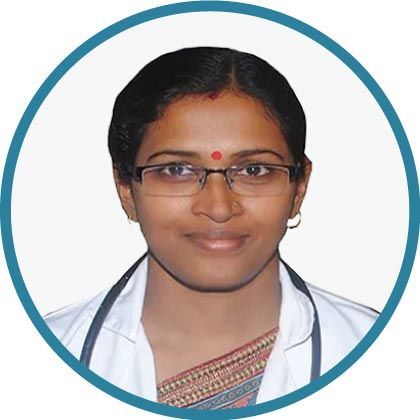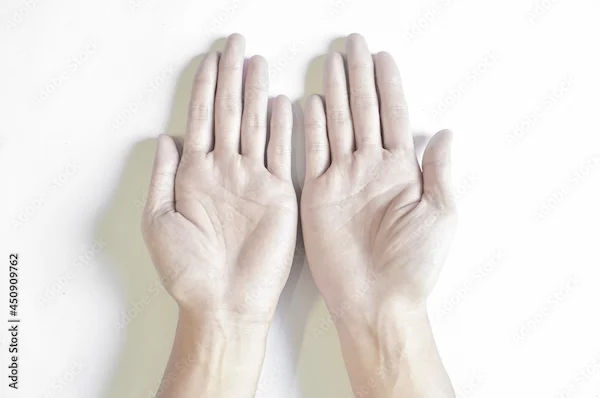PCOD Meaning and Differences Explained
Learn the meaning of PCOD and understand its differences from PCOS, including causes, symptoms, and treatment options for better health.

Written by Dr. Dhankecha Mayank Dineshbhai
Reviewed by Dr. Siri Nallapu MBBS
Last updated on 28th Jul, 2025

Introduction
If you’ve heard the term PCOD (Polycystic Ovarian Disease) and wondered what it means, you’re not alone. Many women experience this condition, but there’s often confusion about what it is, how it affects the body, and how it differs from PCOS (Polycystic Ovary Syndrome).
This article will explain PCOD in simple terms—its symptoms, causes, and how it impacts health—along with practical tips to manage it.
What is PCOD?
PCOD (Polycystic Ovarian Disease) is a hormonal disorder where the ovaries produce immature or partially mature eggs, which can turn into small cysts (fluid-filled sacs). This disrupts the menstrual cycle and can lead to various health concerns.
How is PCOD Different from PCOS?
Many people use PCOD and PCOS interchangeably, but they are slightly different:
PCOD is more common and considered a milder condition. It mainly affects the ovaries and can often be managed with lifestyle changes.
PCOS is a more severe metabolic disorder that affects not just the ovaries but also hormones, insulin resistance, and overall health.
Both conditions share similar symptoms, but PCOS has a higher risk of long-term complications like diabetes and heart disease.
Common Symptoms of PCOD
Women with PCOD may experience:
Irregular periods (delayed, infrequent, or heavy bleeding)
Weight gain (especially around the waist)
Excess facial or body hair (hirsutism)
Acne or oily skin
Hair thinning or hair loss (on the scalp)
Difficulty getting pregnant (due to irregular ovulation)
Mood swings or fatigue
If you notice these signs, it’s best to consult a doctor for proper diagnosis.
Consult Top Specialists for Personalised Tips
What Causes PCOD?
The exact cause is unknown, but these factors play a role:
1. Hormonal Imbalance – High levels of androgens (male hormones) interfere with egg development.
2. Insulin Resistance – The body doesn’t use insulin properly, leading to weight gain and higher androgen levels.
3. Genetics – If your mother or sister has PCOD, you may be at higher risk.
4. Lifestyle Factors – Poor diet, lack of exercise, and stress can worsen symptoms.
How PCOD Affects Health?
If left unmanaged, PCOD can lead to:
Infertility (due to irregular ovulation)
Type 2 diabetes (from insulin resistance)
High cholesterol & heart disease
Sleep apnea (breathing problems during sleep)
Anxiety or depression (due to hormonal fluctuations)
The good news? PCOD can be managed effectively with the right lifestyle changes and medical support!
Tips to Manage PCOD Naturally
1. Eat a Balanced Diet
Avoid: Sugary foods, refined carbs (white bread, pasta), and processed snacks.
Include: High-fiber foods (vegetables, whole grains), lean proteins (chicken, fish), and healthy fats (nuts, avocados).
Try: Cinnamon & fenugreek (help regulate blood sugar).
2. Exercise Regularly
30 minutes of daily activity (walking, yoga, strength training) helps control weight and insulin levels.
3. Manage Stress
Practice meditation, deep breathing, or hobbies to reduce cortisol (stress hormone).
4. Get Enough Sleep
7-8 hours of sleep helps balance hormones.
5. Medical Treatments (If Needed)
Birth control pills (to regulate periods)
Metformin (for insulin resistance)
Fertility treatments (if trying to conceive)
Always consult a doctor before starting any medication.
When to See a Doctor?
If you experience:
Irregular or painful periods
Unexplained weight gain
Excessive hair growth or hair loss
Trouble getting pregnant
A doctor can diagnose PCOD through:
Blood tests (hormone levels, insulin)
Ultrasound (to check ovarian cysts)
If you suspect PCOD or need guidance, Apollo 24|7 offers expert consultations and tests from the comfort of your home. Early diagnosis and care can make a big difference!
Conclusion
PCOD is a common but manageable condition. With healthy eating, exercise, and medical support, you can reduce symptoms and improve your quality of life. If you have concerns, don’t hesitate to reach out to a healthcare provider.
Remember, you’re not alone—many women successfully manage PCOD every day!
Consult Top General Physician
Consult Top Specialists for Personalised Tips

Dr Syed Mateen Pasha
General Physician
2 Years • MBBS
Bengaluru
PRESTIGE SHANTHINIKETAN - SOCIETY CLINIC, Bengaluru

Dr. Mohamed Azeem
General Physician/ Internal Medicine Specialist
2 Years • MBBS,MD(Internal Medicine) CCEBDM
Karaikudi
Apollo Hospitals Karaikudi, Karaikudi

Dr. Bhukya Pavan Kalyan
General Physician
5 Years • MBBS DNB Paediatrics
Bengaluru
PRESTIGE SHANTHINIKETAN - SOCIETY CLINIC, Bengaluru

Dr. Syed Ismail Ali
General Practitioner
7 Years • MBBS
Hyderabad
Apollo 24|7 Clinic, Hyderabad

Dr. Sandhya Chandel
General Physician/ Internal Medicine Specialist
16 Years • MBBS, MD (Int. Med.), IDCCM
Bilaspur
Apollo Hospitals Seepat Road, Bilaspur
(100+ Patients)
Consult Top General Physician

Dr Syed Mateen Pasha
General Physician
2 Years • MBBS
Bengaluru
PRESTIGE SHANTHINIKETAN - SOCIETY CLINIC, Bengaluru

Dr. Mohamed Azeem
General Physician/ Internal Medicine Specialist
2 Years • MBBS,MD(Internal Medicine) CCEBDM
Karaikudi
Apollo Hospitals Karaikudi, Karaikudi

Dr. Bhukya Pavan Kalyan
General Physician
5 Years • MBBS DNB Paediatrics
Bengaluru
PRESTIGE SHANTHINIKETAN - SOCIETY CLINIC, Bengaluru

Dr. Syed Ismail Ali
General Practitioner
7 Years • MBBS
Hyderabad
Apollo 24|7 Clinic, Hyderabad

Dr. Sandhya Chandel
General Physician/ Internal Medicine Specialist
16 Years • MBBS, MD (Int. Med.), IDCCM
Bilaspur
Apollo Hospitals Seepat Road, Bilaspur
(100+ Patients)




